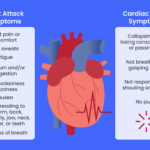The brain is one of the most delicate organs in the body, protected by the skull. But when blunt force or trauma strikes the head, serious injuries can occur. Two of the most common types of brain injuries are contusion and concussion.
Many people confuse these two conditions, but they are not the same. Knowing the difference is important because both require careful attention and, in many cases, immediate medical care.
What Is a Brain Contusion?
A contusion is essentially a bruise on the brain caused by bleeding under the surface. It usually happens after a strong blow to the head, often near areas where the brain sits close to sharp ridges of the skull.
Common Symptoms of a Contusion
- Loss of consciousness or extreme drowsiness
- Memory loss
- Poor coordination
- Changes in personality or behavior
- Trouble with speech or vision
- Seizures in severe cases
Treatment for a Contusion
The severity of the injury determines the treatment plan.
- Mild cases: Rest and observation at home.
- Moderate to severe cases: Hospitalization, diagnostic imaging (MRI, CT scan), and close monitoring.
- Critical cases: Surgery may be required if there is heavy bleeding or clotting.
If untreated, severe contusions can lead to coma or even death.
What Is a Concussion?
Unlike a contusion, a concussion does not involve visible bleeding or bruising of the brain. Instead, it is a disruption in brain function, often caused by the brain moving rapidly inside the skull.
Concussions are especially common in contact sports and car accidents, though they can happen in everyday falls or impacts.
Common Symptoms of a Concussion
- Brief loss of consciousness
- Headaches and dizziness
- Ringing in the ears (tinnitus)
- Slurred speech
- Sensitivity to light
- Personality or mood changes
- Cognitive issues that may last weeks or months
Risks and Recovery
- Post-concussion symptoms such as headaches and vertigo may linger for months.
- Repeated concussions increase the risk of long-term brain damage and epilepsy.
- Rest is the most important treatment, including limiting physical and mental activities until recovery.
Contusion vs. Concussion: The Key Differences
| Feature | Contusion | Concussion |
|---|---|---|
| Type of Injury | Bruise on the brain with bleeding | Functional disturbance without bleeding |
| Causes | Strong impact to the head, skull ridges pressing into brain | Rapid brain movement inside the skull |
| Symptoms | Loss of consciousness, seizures, speech/vision problems | Headaches, dizziness, light sensitivity |
| Severity | Can be life-threatening, may require surgery | Often mild but risks increase with repeated injury |
| Treatment | Rest, hospitalization, sometimes surgery | Rest, activity restriction, monitoring |
When to Seek Medical Attention
Both contusions and concussions are medical emergencies. Seek immediate help if you or someone you know experiences:
- Prolonged unconsciousness
- Repeated vomiting
- Seizures
- Confusion or slurred speech
- Weakness on one side of the body
Conclusion
While contusions involve actual bleeding in the brain and can be life-threatening, concussions affect how the brain works without visible bruising. Both are serious conditions that require prompt evaluation and care.
Understanding the difference helps patients, families, and caregivers recognize symptoms early and ensure the best possible recovery.







